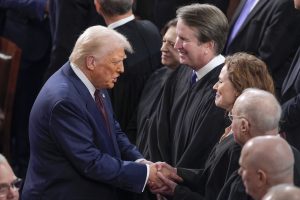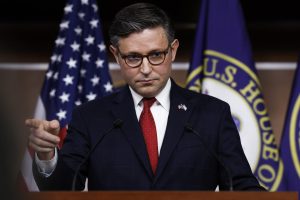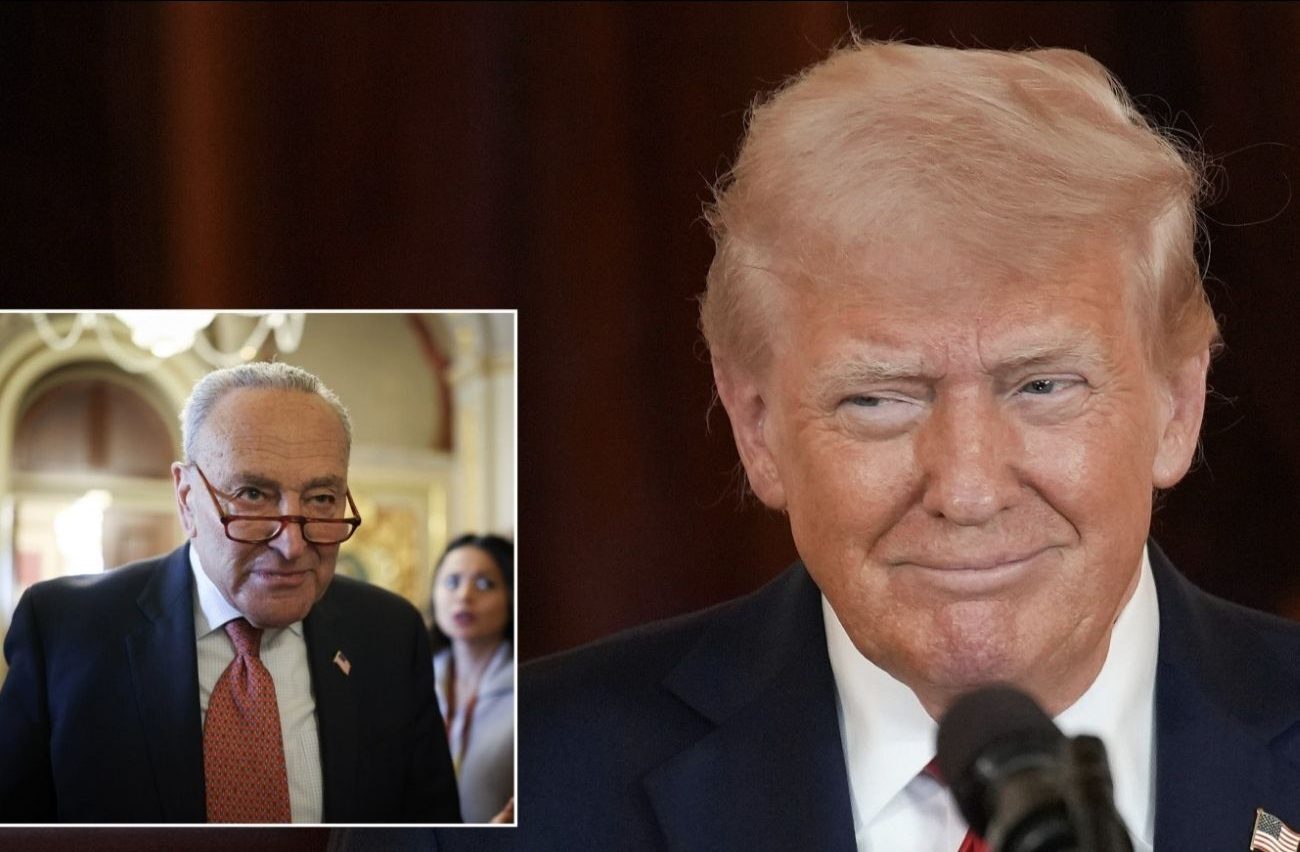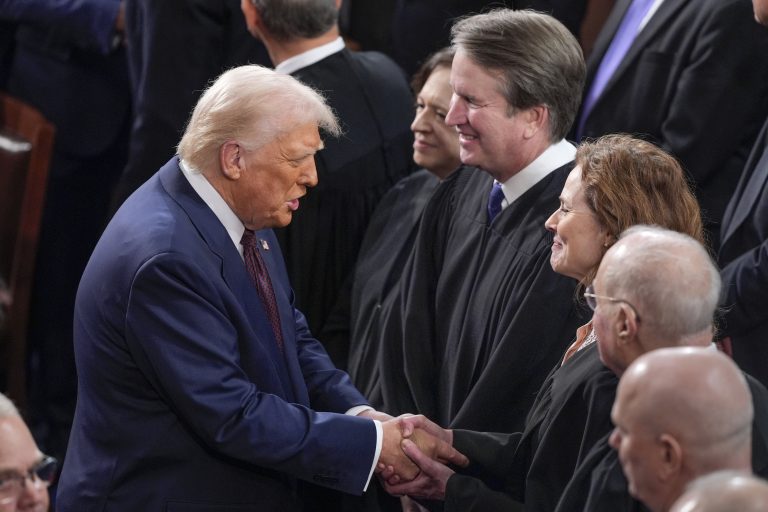Washington, D.C. — After another tense round of negotiations, the federal government remains partially shut down, with no clear sign of resolution as both parties continue to dig in.
On Tuesday, Senate Democrats blocked a Republican-led effort to reopen government operations for the eighth time since the shutdown began earlier this month. The deadlock reflects a broader battle over spending priorities, with each side blaming the other for the continued impasse.
The White House has maintained that the federal closure cannot continue without significant fiscal reforms. Office of Management and Budget Director Russ Vought warned over the weekend that if funding remains frozen, mass layoffs could soon follow. Democrats, led by Senate Minority Leader Chuck Schumer of New York, have countered that the GOP plan fails to protect key programs and leaves millions vulnerable to rising healthcare costs.
Despite the gridlock, one potential crisis was averted. President Donald Trump directed the Pentagon to reallocate unused funds to ensure that military personnel receive their paychecks on schedule October 15. The move eased immediate concerns about troop pay interruptions but did little to address the broader impact of the shutdown, which continues to affect federal employees, contractors, and local economies nationwide.
For Senate staffers and many civilian workers, however, uncertainty looms large, as no similar stopgap has been announced to cover the next round of payrolls.
The Core Dispute
At the center of the standoff lies a disagreement over healthcare funding. Senate Democrats are demanding an extension of Affordable Care Act (ACA) subsidies, set to expire ahead of the November 1 open enrollment period. Without renewal, they argue, millions of Americans could face steep premium increases.
Republicans, led by President Trump and Senate Majority Leader John Thune of South Dakota, contend that such measures should be debated only after the government is reopened. The GOP insists that tying ACA funding to the shutdown resolution sets a dangerous precedent and undermines broader spending reform efforts.
Trump reiterated his position this week, accusing Democrats of using the impasse to push partisan priorities. “Schumer said 100 times you should never close our government,” Trump told reporters. “But he’s allowed the radical left to take over his party. It’s about time someone stands up for the American taxpayer.”
The White House has also criticized Democratic spending proposals that include restoring funding for National Public Radio, PBS, and programs aiding undocumented immigrants—provisions Republicans say fall outside the core issue of reopening the government.
Repeated Votes, No Breakthrough
Despite mounting frustration from federal workers and constituents, the Senate remains locked in procedural stalemate. Majority Leader Thune has repeatedly brought the House-passed short-term continuing resolution (CR) to the Senate floor, hoping to pressure Democrats into supporting a temporary funding measure while long-term talks continue.
“Negotiation is what happens when both sides have demands and are willing to meet in the middle,” Thune said on the Senate floor. “Right now, only Democrats have a list of demands—and they’re extremely expensive.”
Schumer, in response, accused Republicans of political theater. “We’ve seen this same dead-end proposal again and again,” he said. “It’s time for Republicans to work with Democrats to craft a bipartisan solution that truly reopens the government.”
The back-and-forth has created an atmosphere of gridlock reminiscent of previous shutdowns, with neither side appearing ready to concede.
Growing Signs of Division
While Democratic leadership has largely held firm, cracks in party unity are beginning to show. Senators Catherine Cortez Masto of Nevada and Angus King of Maine (an Independent who caucuses with Democrats) joined Republicans in voting for the stopgap measure, citing the need to get the government running again.
Sen. John Fetterman of Pennsylvania, who had supported similar Republican proposals in prior votes, was absent from Tuesday’s session. His previous statements suggest frustration with both parties’ handling of the crisis, calling shutdowns “the wrong message for America.”
The partial defections hint at growing unease among Democrats from competitive states, where constituents are beginning to feel the effects of federal closures.
The Broader Impact
With federal agencies operating at limited capacity, the ripple effects are becoming increasingly visible. National parks have reduced services, loan and permit applications are delayed, and contractors face layoffs. Economists estimate that if the shutdown continues through the end of the month, it could shave billions from fourth-quarter GDP growth.
Healthcare providers serving military families are also reporting reimbursement delays through the TRICARE program, further fueling concerns about the human toll of the impasse.
For now, both sides appear determined to hold their ground. Democrats continue to insist that any reopening deal must include ACA subsidy extensions, while Republicans remain focused on broader fiscal reform and spending restraint.
The next key date is October 15 — when the Pentagon’s temporary payroll measure takes effect and other agencies face new funding deadlines. If Congress fails to act, pressure on both parties will intensify as pay interruptions and service delays deepen.
As one senior Senate aide put it Tuesday night, “Everyone’s waiting for someone else to blink.”
Political Fallout
The political consequences of the ongoing shutdown could prove significant. Analysts note that extended closures tend to erode public trust in Congress and harm incumbents perceived as obstructionist — a dynamic both parties are keenly aware of heading into next year’s elections.
For now, however, the rhetoric shows no sign of cooling. Republicans accuse Schumer and the Democrats of “holding the government hostage,” while Democrats argue the GOP is prioritizing political wins over American livelihoods.
With each failed vote, the frustration among voters — and even among lawmakers — continues to grow.

Sarah Mitchell is a bestselling novelist recognized for her insightful and emotionally resonant stories that explore the complexities of human relationships. Originally from Denver, Colorado, Sarah grew up in a family of teachers who nurtured her curiosity and love for storytelling. She studied psychology at Stanford University, where she became fascinated by the intricacies of human behavior—an interest that would later shape her writing career. Sarah’s novels are praised for their nuanced characters, intricate plots, and ability to capture the subtle tensions that define love, friendship, and family ties. Her breakthrough novel, The Spaces Between Us, became an instant bestseller, lauded for its honest portrayal of strained family relationships and the fragile bonds that hold people together. Since then, she has published several works that continue to captivate audiences around the world. Outside of her writing career, Sarah is passionate about mental health advocacy and often partners with organizations to promote awareness and support for those struggling with emotional well-being. Her personal life is quieter—she enjoys hiking in the Colorado mountains, practicing yoga, and spending time with close friends. With each new book, Sarah Mitchell cements her reputation as a writer who illuminates the beauty and struggles of human connection.









